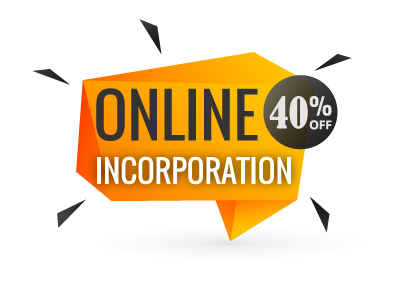For foreign investors, especially, accounting is a sensitive matter when they must start a business in another country, so our accountants in Canada are here to help. Moving or starting a company in Canada is simple from certain points of view, such as the legal requirements.
However, when considering the accounting matters, one must pay attention to two main aspects: the federal and the regional or territorial regulations.
For this purpose, there are many companies and consultants offering accounting services in Canada. You can rely on our local agents for accounting and company formation services in Canada.
A brief overview of the Canadian taxation system
In order to know what are the accounting services one needs, it is best to find out some information on the taxation system in Canada. As mentioned earlier, taxation in Canada is imposed at a federal or provincial level, it all depends on where one resides or how a company is registered.
Canada imposes the following taxes:
- the income tax which levied on the income earned by individuals residing in Canada;
- the corporate tax which is applied to the income generated by companies in Canada;
- the sales tax which is also known as the Harmonized Sales Tax or Value Added Tax;
- the property tax which is applied to the income derived from owning residential property.
All taxes are collected by the Canadian Revenue Agency. The federal taxes applied on income are levied at various rates based on certain thresholds of income; the taxes applied to companies in Canada are also levied at different rates.
Our accountants in Canada can offer information on the taxation system applicable in this country. We also remind you that you can rely on us for accounting services.
The main tax laws in Canada
Both foreign and local entrepreneurs and individuals residing in Canada must abide by the following laws related to taxation:
- the Income Tax Law which is the main act governing taxation at federal and regional levels;
- the Tax Rebate Discounting Law which provides for the refund of taxes paid in Canada;
- the Income Tax Conventions Interpretations Law which provides for the tax agreements signed by Canada;
- the Income Tax folios which is a set of regulations establishing the taxation of special categories of taxpayers.
We have also created a video with the accounting services provided in Canada:
Federal tax rates in Canada
The following tax rates apply at a federal level in Canada:
| Tax | Rate |
| Income tax | 15%-33% |
| Corporate tax | 11%-34.67% |
| Value Added Tax | 5% |
| Property tax | Depends on the value of the property |
Accounting services available in Canada
Canadian companies and residents can request various accounting services based on their needs; however, it is more common among businesses to ask for such services.
The following accounting services can be provided by our consultants in company formation in Canada:
- assistance in setting up a corporate bank account when opening a company in Canada;
- drafting the monthly, quarterly and annual financial statements;
- filing financial accounts with the Canadian Revenue Agency;
- audit services;
- payroll services.
We also offer tailored accounting services depending on the clients’ requests. Among these, we remind of the virtual office packages available for foreign enterprisers.
It is important to know that the accounting requirements imposed on companies in Canada depend very much on the type of business registered with the Trade Register.
Below, our company formation specialists in Canada explain the most important accounting requirements for businesses. We specialize in offering company registration and accounting services for your business in Canada.
Legislation on accounting requirements for companies in Canada
In order to maintain proper accounting for a Canadian company, the company’s officers and the directors are required to respect various laws and regulations.
One of the most important accounting laws is the Canada Business Corporations Law which provides for the corporate financial reporting requirements imposed on businesses.
Other laws which must be respected by Canadian companies are the Regulation of Accounting Profession which stipulates that the accounting of a business must be kept by professionals registered with the Chartered Professional Accountants and with the Canadian Public Accountability Board, and the Audit Oversight Arrangements which cover the audit requirements for local companies.
All companies in Canada must respect the International Financial Reporting Standards (IFRS) and the Generally Accepted Accounting Principles (GAAP) when filing accounting documents.
Our accountants in Canada can help to respect the accounting requirements imposed at national and regional levels.
Corporate records of Canadian companies
All companies in Canada must comply with the regulations imposed by the Accounting Standards Board when it comes to the accounting requirements and which provide among others for business to maintain proper corporate records.
Canadian corporations must keep specific documents at its registered seat, while other documents must be kept in another location chosen by the board of directors.
The following documents must be kept by Canadian businesses:
- the company’s Memorandum and Articles of Association together with all the amendments brought to them;
- all the minutes of the meetings held by the shareholders or other officers in the company;
- a register of the directors where all the details of the company’s directors and members of the board of directors are recorded;
- a register of the company’s officers which must contain information on all the officers in the company;
- a register of the company’s members or shareholders which must provide information on all the participants in a company;
- the company’s accounting records which must be duly prepared, among these the financial statements.
It is important to know that the accounting records must be prepared by the directors and must be disclosed to the shareholders during the annual general meeting. In order to be filed with the Canadian Revenue Agency, the accounting records must be approved by the shareholders.
If you want to open a company in Canada and need information on the accounting requirements it must comply with, our accountants in Canada can inform you.
Accounting documents to be maintained by companies in Canada
There are various accounting requirements which need to be respected by Canadian companies. Among these, a business must keep and file specific documents with the relevant authorities in Canada.
The following accounting documents must be recorded by companies in Canada:
- the balance sheet of the company which must comprise information on its annual earnings;
- the profits and loss account which must provide information on the profits and losses registered by a company in the previous financial year;
- a statement of retained earnings and a cash flow statement must also be submitted with the Revenue Agency;
- various tax returns, such as T2 form and the Goods and Services Tax return, depending on the business form.
What are the main accounting rules in Canada?
After you will complete the procedure for company formation in Canada, you will automatically have to abide by a large set of accounting regulations, which are imposed to all companies, although differences can appear based on the size and the type of the company.
Investors should be aware of the following:
- the tax year in Canada begins on 1st of January and ends of 31st of December and this is generally the tax year followed by most businesses;
- however, a company is also entitled to start the tax year since the month in which the company became operational, a tax year that is comprised of the next 12 consecutive months;
- the tax year must be comprised of maximum 53 weeks;
- starting with 1st of January 2011, private companies are required to follow the rules and regulations of the Accounting Standards for Private Enterprises (ASPE);
- the ASPE is included in the Part II of the CPA Canada Handbook (Chartered Professional Accountants Canada Handbook).
What does the CPA Canada Handbook contain?
The Handbook provides for the main types of reporting framework applicable to various types of entities that can be incorporated in this country.
If you open a company in Canada as a commercial entity, you will need to follow a specific set of accounting rules, while if you set up a non-profit organization, other rules apply.
The Handbook is elaborated by the Chartered Professional Accountants Canada and it is divided into 5 main parts, as follows:
- Part I refers to the accounting procedures imposed to publicly accountable entities, which must follow the IFRS;
- Part II provides the legal framework applicable to private entities, which must follow the ASPE;
- Part III regulates the accounting of non-profit organizations, which must follow the Accounting Standards for Not-for-Profit Organizations;
- Part IV handles pension plans, done in accordance with the CPA Handbook Section 4600;
- Part V was created as an intermediate legal and accounting procedure applicable to certain entities during the legal transition to the new law implemented in 2011.
Please know that if you will open a company in Canada for commercial purposes or as a non-profit entity, you will have the right to follow the IFRS as well. Thus, entities regulated by Part II and Part III of the Handbook can also opt to follow the accounting standards prescribed under Part I.
What information is observed when preparing the Canadian financial statements?
Canadian companies and foreign companies operating in Canada must prepare the following 4 types of accounting reports:
- the income statement;
- the balance sheet;
- the statement of retained earnings;
- the cash flow statement.
All these documents should provide an accurate and current image on the financial situation of a company and each of the 4 documents presented above refer to different types of financial situations.
For instance, the balance sheet provides an image concerning the assets and liabilities of a legal entity, as recorded at the end of the financial year.
The income statement is a document designed to provide information regarding the profit of the company during the financial year. The document includes accurate details on the spending of the company and the earnings.
It includes information on the operating expenses of a company, such as rent, employment, utilities, insurance, etc., the gross and net revenue, as well as the costs of the company in relation to the goods/services sold.
Our accountants in Canada can offer further information concerning these 2 documents. Please mind that companies must also need to prepare the notes to the financial statements, which must also state the type of accounting standard the company follows.
If you decide to open a company in Canada, you should know that:
- Canada provides various tax benefits through 14 agreements available in 49 partner countries;
- the country is the 1st global nation regarding the education of its population (62% of the Canadians have graduated from tertiary education);
- Canada is the 13th largest economy (at a global level);
- it ranks as the 1st G7 nation on political stability and the 1st for attracting and retaining international talent.
For full information on the accounting and company formation packages we can provide in Canada, do not hesitate to contact our accountants in Canada.


